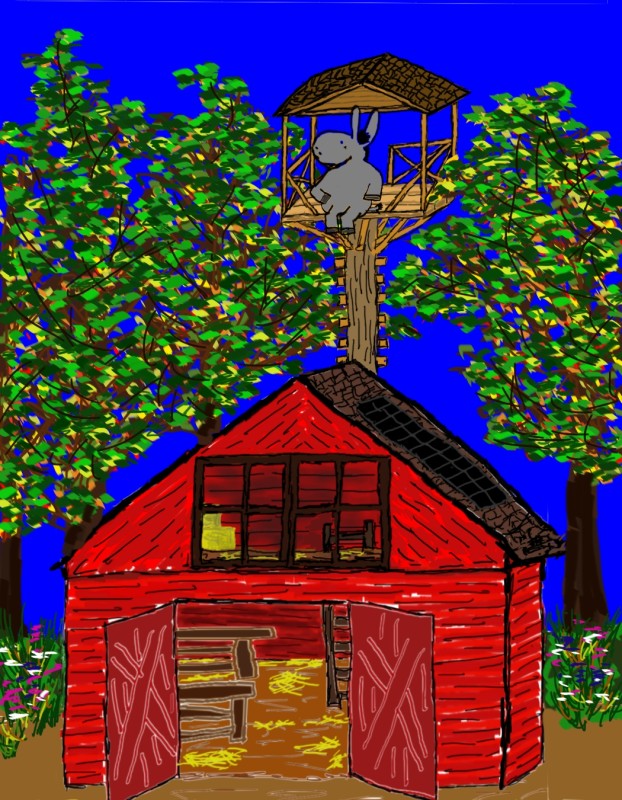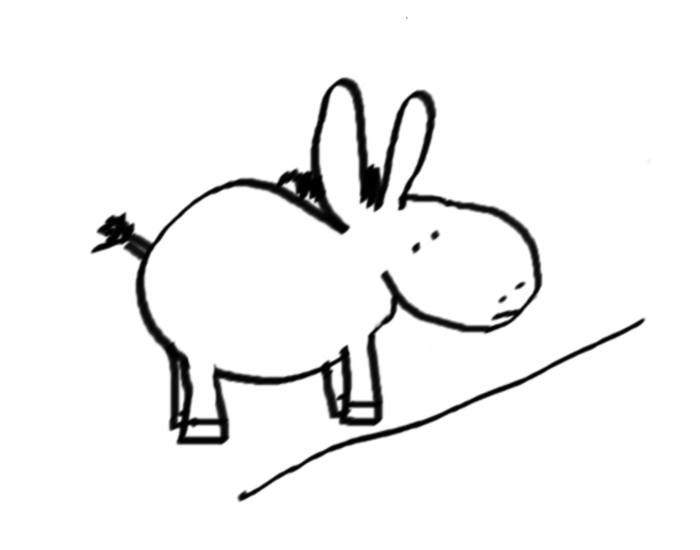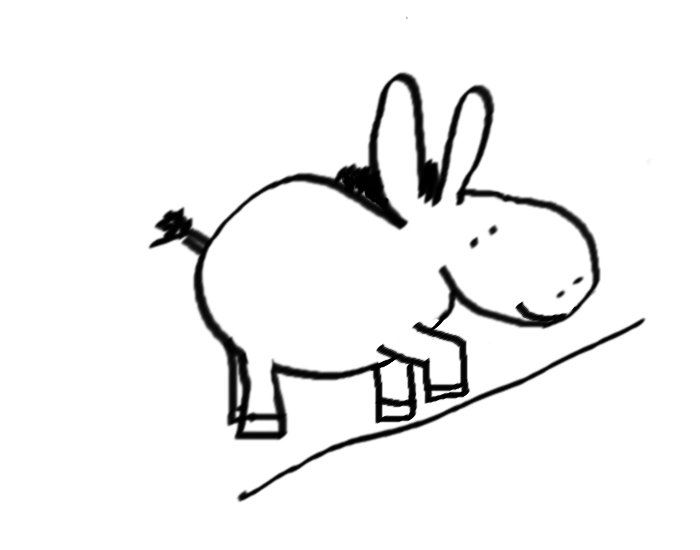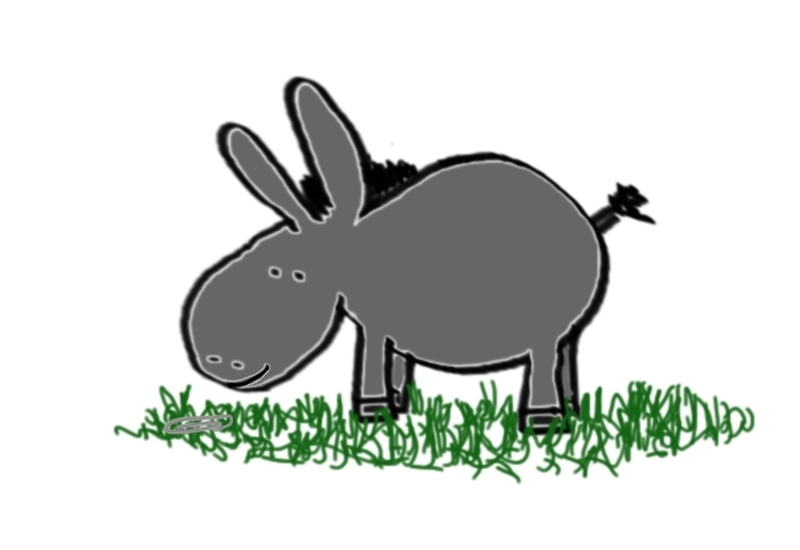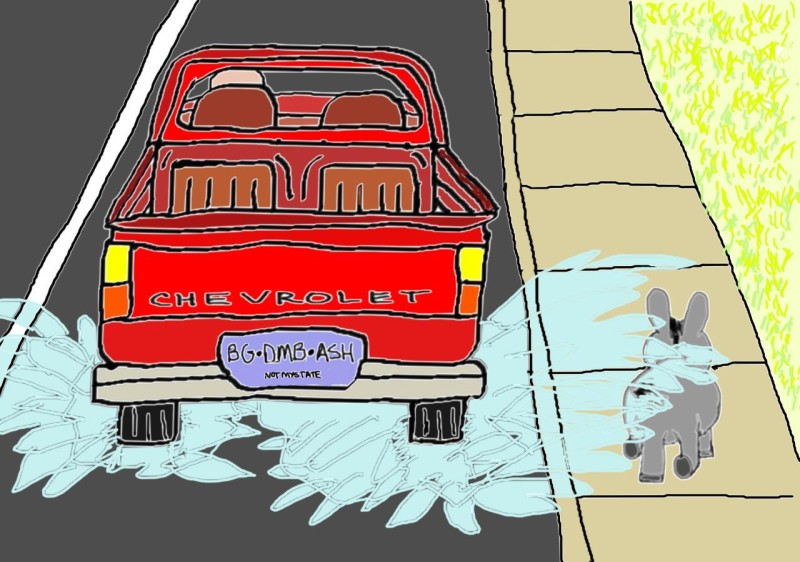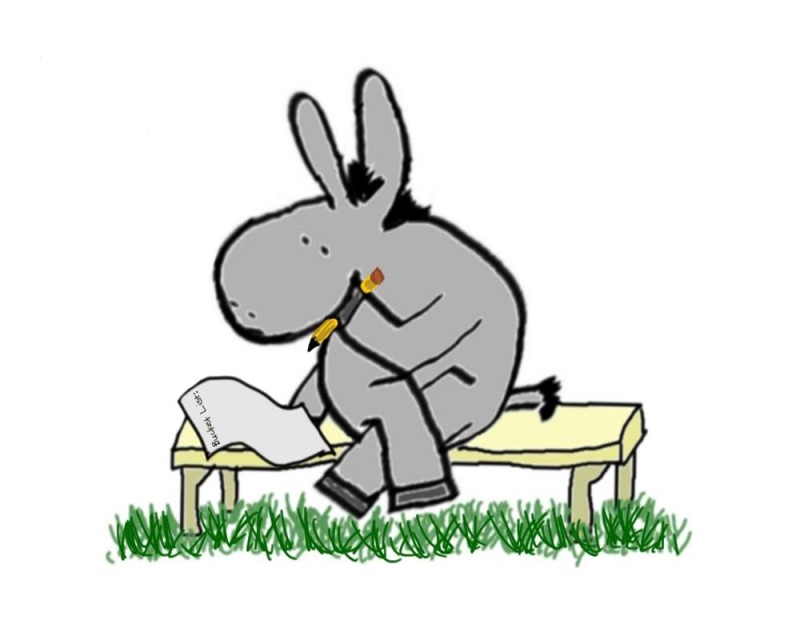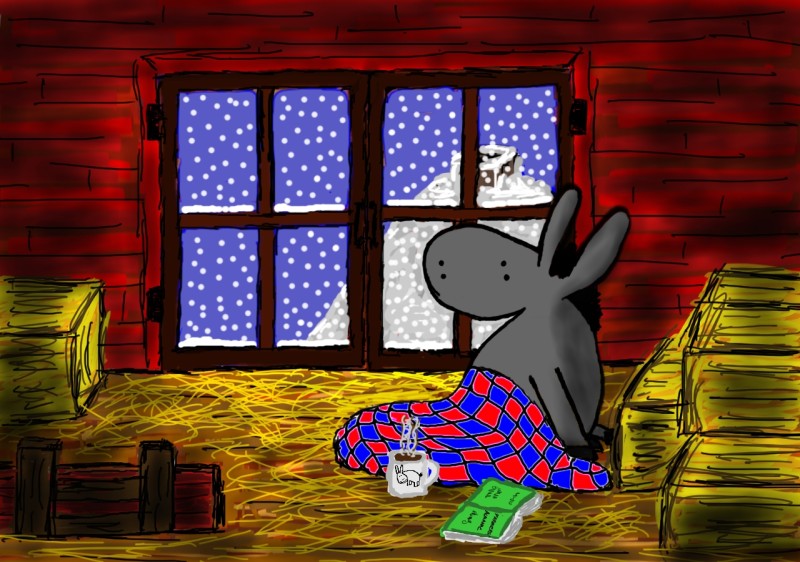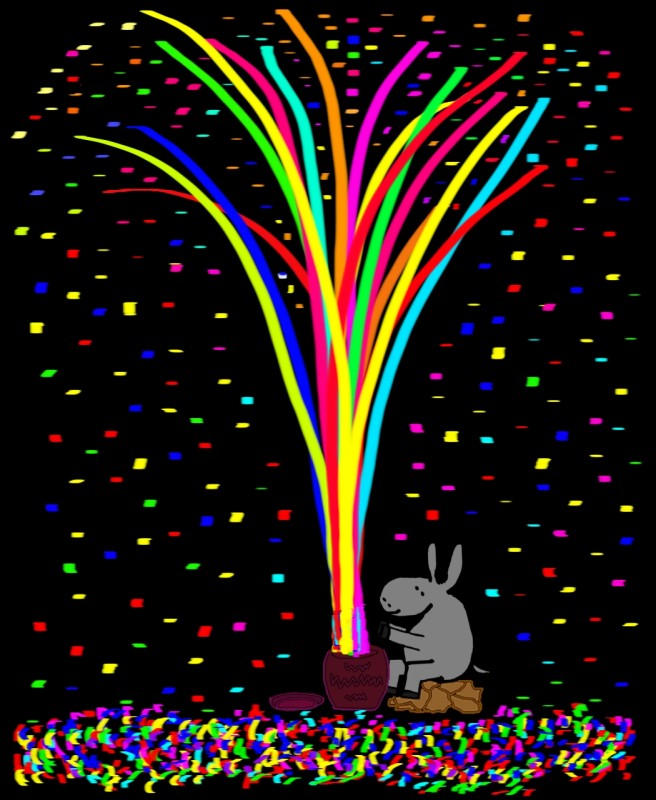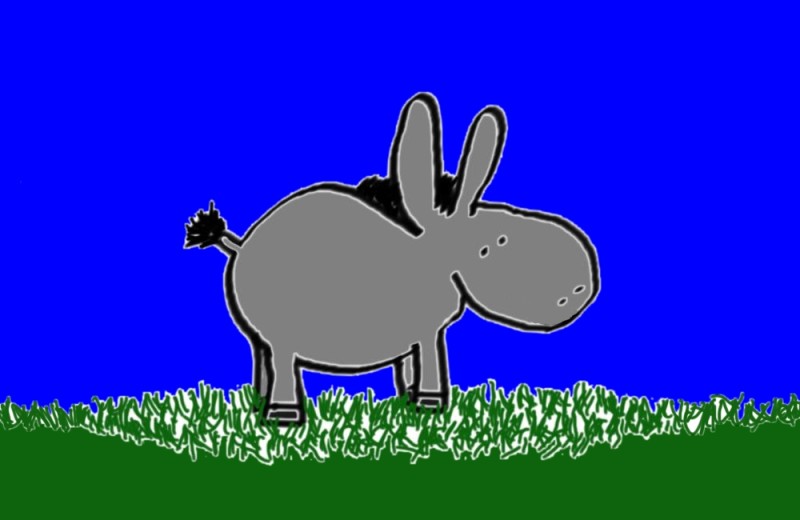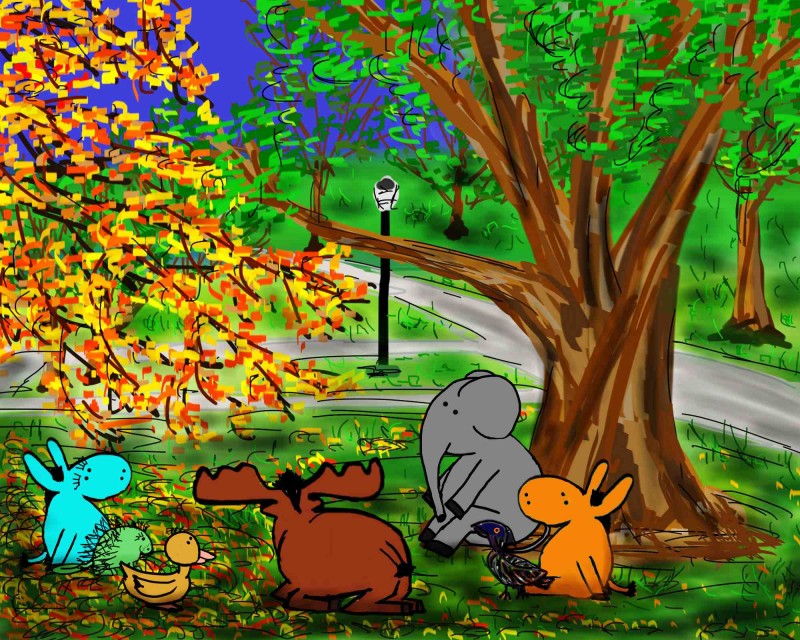Hmmm, thought Blurtso, the season is really changing. Soon the leaves will turn yellow and fall. And once again I’ll be astonished… by the newness of predictable things.
Tag: acceptance
“Blurtso crosses the line”
That’s far enough, said Blurtso, drawing a line on the ground with the edge of his hoof. The sand was dry and sun-baked and he had to scrape the surface several times before the mark was visible. That’s far enough, he repeated, and the others remained on their side of the line. Blurtso remained on his side as well, looking up at the others then looking down at the ground. The sun that had baked the ground was hot and began to bake Blurtso and continued to bake the ground. One by one the others walked away. Then there was only Blurtso, the sun, and the ground…
Ooops, said Blurtso, as he let his hoof slip across the line he had drawn in the sand. Ooops, he said, as another hoof crossed, followed by his haunches, his rump, and his stumpy little tail. Ooops, he said, turning and sweeping the line with his boxing-glove nose, then stamping and stomping and tromping until there was no mark left at all. Very good, thought Blurtso, as he surveyed his work and considered his new-found freedom. Freedom? he thought, looking in the direction where the others had gone. Wait for me! he cried, scampering off to join them.
“Blurtso is what he eats”
“Blurtso gets honked off the road”
“Blurtso makes his bucket list”
“Blurtso looks at the snow” (XXII)
“Blurtso makes a resolution”
It’s a new year… I guess I’d better make a resolution. Let’s see… “this year I resolve to…” hmm… “I resolve…” hmm… what does that mean…? To be “resolved,” to be “determined,” to be “unyielding in one’s purpose,” to be “intransigent,” “inveterate,” “obdurate,” and “inflexible.” Hmm, I don’t really like that. I think being flexible is the key to happiness. Of course, flexibility implies rigidity, that is, something to be “flexible” about. Hmm… what I need is a resolution that is both rigid and flexible… I know!… “This year I resolve… to be less resolved.”
“Blurtso feels lucky to be here”
“Weohryant University” (XIX) – Where 101
Today’s question, said Harlan, is: “Where did it go?”
Where did what go? said Chelsea.
It was here just a minute ago, said Morton.
I didn’t take it, said Emma Lou.
Neither did I, said Frank.
Do you mean “ubi sunt”? said Glouster.
Ubi sunt? said Morton.
“Ubi sunt,” said Glouster, is Latin for “Where are they?” It comes from a Latin poem that begins, “Ubi sunt qui ante nos in mundo fuere?” which translates: “Where are they who, before us, existed in the world?” It was a common theme in medieval poetry, and was most famously expressed by the French poet, François Villon who asked, “Où sont les neiges d’antan?” or “Where are the snows of yesteryear?”
The snows of yesteryear? said Morton.
I don’t like snow, said Chelsea.
Neither do I, said Frank.
I don’t mind it, said Emma Lou, so long as I’m not far from my den.
Why would anyone worry about last year’s snow? said Morton.
It’s a metaphor, said Glouster, for all the things you’ve lost in your life.
Lost? said Chelsea.
Yes, said Glouster, the things you had in the past that you no longer have.
The things I’ve eaten? said Morton.
Yes, said Glouster, and the friends you’ve lost, and your lost youth.
My lost youth? said Chelsea.
Yes, said Glouster.
I’m not going to lose my youth, said Chelsea.
Of course you are, said Glouster.
Really? said Chelsea.
Yes, said Glouster.
In that case, said Chelsea, I don’t like “ubi sunt.”
Crows live forever, said Frank.
They do? said Morton.
Sure, said Frank, crows, or “ravens”, and nightingales, and even some other birds.
Are you sure? said Morton.
Yes, said Frank, just ask Edgar Allen Poe and John Keats.
Who are they? said Chelsea.
They are poets, said Frank, who wrote about birds who live forever, birds who travel from heaven to earth to hell and then back again.
Have you been to heaven and hell? said Chelsea.
No, said Frank, not yet.
I don’t want to go to hell, said Morton.
Heaven and hell, said Glouster, are metaphors for, “the realm of the dead.”
I don’t want to go there either, said Morton.
Maybe, said Chelsea, that’s where the “ubi sunts” are.
I know a song, said Frank, about “ubi sunt.”
What’s it called? said Chelsea.
It’s called “The Ashgrove,” said Frank, and it has a blackbird in it.
How does it go? said Chelsea.
I don’t remember all the words, said Frank, but it’s about a woman who loses her lover and looks for him in an ashgrove.
Does she find him? said Chelsea.
No, said Frank, he’s buried beneath the green turf.
Is that a metaphor for “the realm of the dead”? said Morton.
Yes, said Frank.
Why doesn’t the blackbird, said Chelsea, fly to the realm of the dead, talk to the dead lover, then return and talk to the woman so she can have a sense of closure?
That’s a good question, said Frank.
What’s closure? said Morton.
Closure, said Chelsea, is talking with your ex-lover until you have nothing more to say.
Why would you want to do that? said Morton.
Because, said Chelsea, if you say everything you have to say, you can stop thinking about him when he’s gone.
So he doesn’t become an “ubi sunt”? said Morton.
Yes, said Chelsea.
I would like to be an “ubi sunt”, said Emma Lou.
So would I, said Glouster.
Why? said Chelsea.
Because, said Glouster, I don’t want to be forgotten.
Being forgotten, said Emma Lou, would be like a second death.
Maybe it’s a good thing, said Morton, for people to go around asking “ubi sunt?”
Why? said Chelsea.
Because, said Morton, it keeps the dead from dying.
